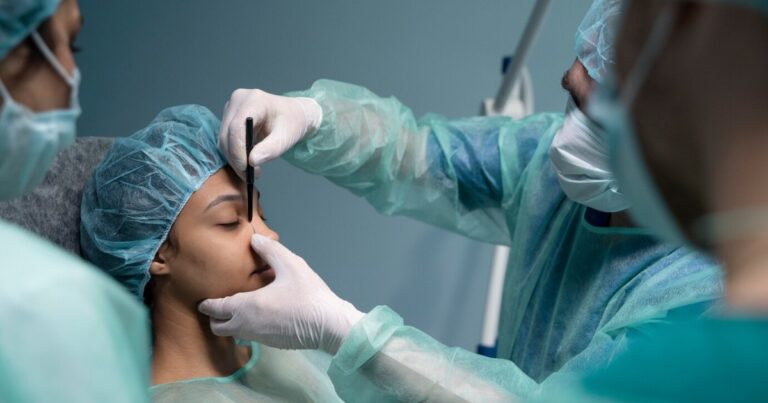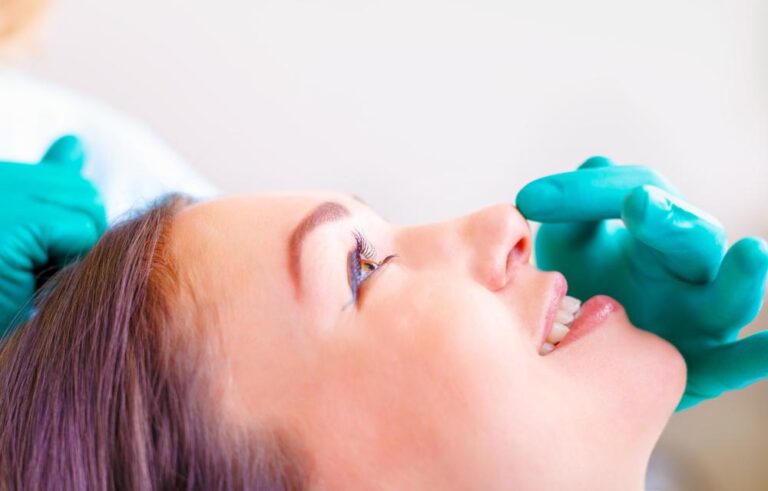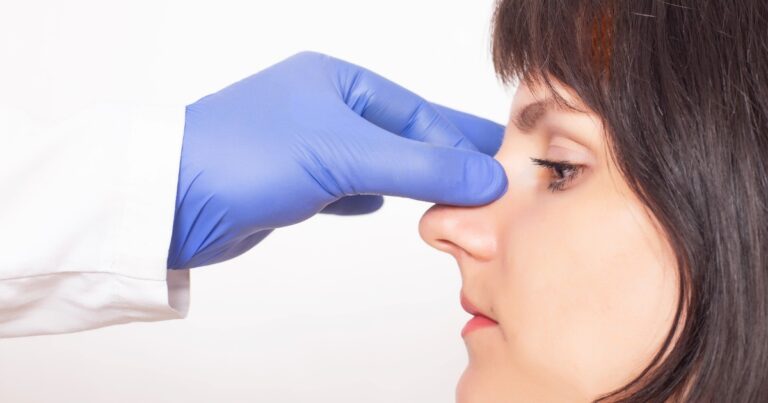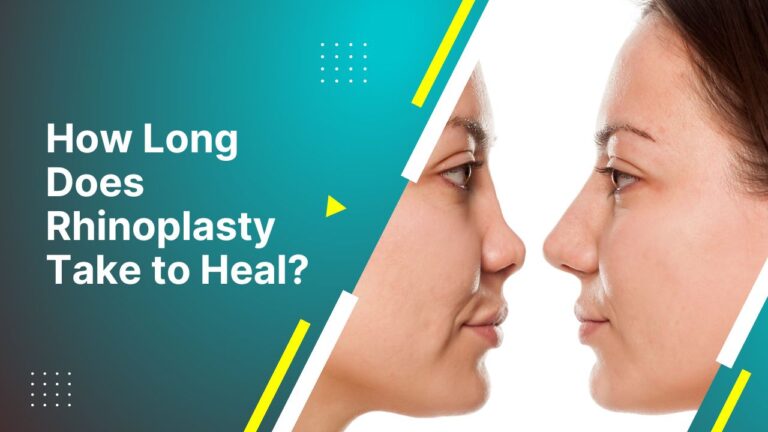Are you ready for your nose surgery? Get to know some effective rhinoplasty recovery tips and any items you have to avoid to have an easier recovery time.
It is very common to get anxious as you draw up to your surgery date. In order to reduce anxiety, it is better to be well prepared and to know what to expect about rhinoplasty surgery.
Even as you talk to your surgeon and get to know the expected rhinoplasty recovery time, here are some tips to make it easier and information on what you should know before going in for the procedure.
What is Rhinoplasty?
Rhinoplasty is a medical term that stands for nose surgery, which changes the shape of the nose. This cosmetic procedure is carried out to improve the overall facial appearance and is sometimes referred to as a nose job. It is performed on individuals who are not happy with the shape or size of their noses.
The procedure can be carried out to either change the outward appearance of the nose, improve breathing or both. It is also done to correct deformities from congenital disabilities or injuries.
How to Prepare for Rhinoplasty
Preparing for rhinoplasty will involve more than just setting apart time; you will need
Book A Consultation With Dr Tarek Bayazid
Top-rated Plastic Surgeon For Rhinoplasty in Dubai
Installment Plan Available
to get ready both mentally and physically.
Firstly, it is important that you are in good health and keep your body well maintained to ensure your recovery process is smooth and doesn’t prolong more than needed.
When you are ready for rhinoplasty, your doctor may tell you to eliminate some foods and medication in preparation for the procedure that may affect the amount of bruising.
Here are some things to avoid before your rhinoplasty procedure
Before the procedure, you should eat healthy meals rich in proteins and drink lots of water. However, you should not eat or drink eight hours before your surgery.
Water will keep you hydrated and prepare you for the effects of anaesthesia and surgery. Reduce the amount of salt in your food to reduce the swelling you can get post-surgery.
On your surgery day, plan for someone to drive you to get from the surgery centre to your home and stay the night with you.
Rhinoplasty Surgery Recovery Tips
Take a Break and Rest
Your body will need lots of time for healing and recovery, so make time to rest. It is important to take lots of rest as it will help with faster recovery. This is not the time to start your high training and strenuous activities, but to keep away from any activity that may increase stress on the body or cause injury.
Use Ice Packs
Use a cooling pad or ice pack around your nose and treated area to keep the swelling down. The cool ice will alleviate swelling and reduce pressure and blood flow to the area. You can use an ice pack every two hours, for about 10 to 15 minutes at a time, for one week after the surgery.
Continue with Medication
Remember to take any prescribed medication, such as painkillers and antibiotics, in the correct dosage. Your doctor will prescribe medication that will aid your healing but doesn’t interfere with your healing or cause any adverse reactions.
Even though you need rest, you must get up and walk around. Walking will help increase blood circulation in your body and prevent any fluid buildup. Take a walk outside where there’s fresh air to increase the oxygen flow in the body.
Eat Healthy Meals
Your body needs energy and nutrients to heal. Eating healthy meals and drinking lots of water will help your body recover faster. Foods like fresh pineapples or papayas can eliminate bruises more quickly.
Take care of your treated area the best way you can by avoiding irritating your nose or keeping items away that may bruise your nose. You can avoid sleeping with pets or young children until you feel better. If they knock you by accident, this could mean an extended recovery time.
Keep the dressing on to prevent bleeding on your nose until the doctor removes it two days after surgery.
In Conclusion
Give your body enough time for rhinoplasty recovery by avoiding strenuous activities in the first two weeks. You could increase your activity level after two weeks when your doctor gives you the go-ahead. Sleep with your head elevated at approximately 30 degrees for the first three nights.
Dr. Tarek will give you specific guidelines for your recovery. You should follow your doctor keenly. Failure to follow through could mean a longer recovery period, injury, or infection in the treated area. Call the doctor if you experience excessive bleeding.
A close family member or friend is important for social support and encouragement.
If you have more questions, contact Dr. Tarek; he will be glad to answer any questions. Find out about the cost of Rhinoplasty In Dubai
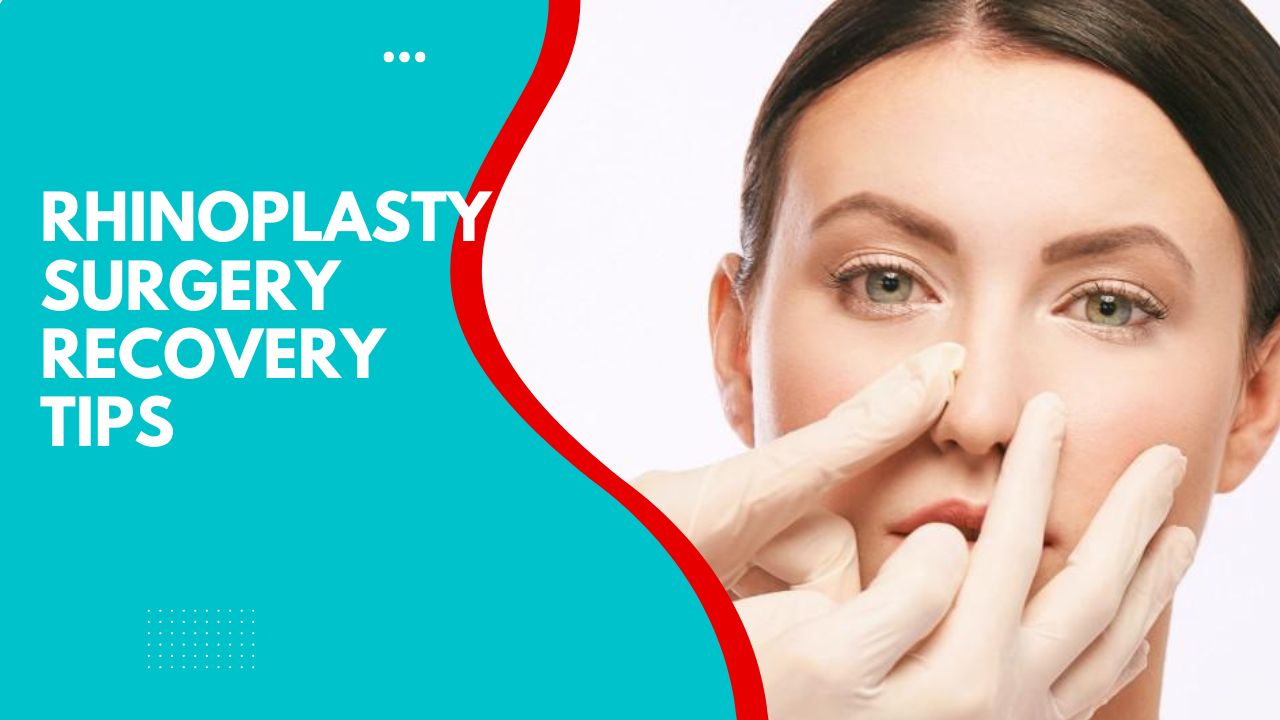


![[Non-Surgical] Rhinoplasty: Everything You Need To Know 4 Dr. Tarek Aesthetics | Best Plastic Surgeon In Dubai Rhinoplasty Dubai](https://www.drtarekaesthetics.com/wp-content/uploads/2022/06/Nonsurgical-rhinoplasty-768x431.jpg)
